
Last year, our Emergency Response Service (ERS) received 160,063 calls for help. Our ERS team work 24 hours a day, 365 days a year so that members of the public always have someone to call for assistance with sick, injured, or orphaned wildlife. Wildlife Victoria has operated a wildlife emergency rescue service since 1989 thanks to the support from our donors, dedication of our volunteers and of course, the wildlife enthusiasts and experts at the heart of the ERS.
Meet one of our Emergency Response Operators, Luke – a passionate advocate for wildlife conservation.
Our Emergency Response Operators (EROs) are not only incredibly passionate about our native wildlife, they are also exceptionally knowledgeable and experienced with the hundreds of species we receive calls about. Thanks to the continued support from our amazing donors, the ERS team is highly trained and ready for anything.
We spoke to Luke to find out what drove him to a career in wildlife rescue and what it’s like working in the ERS.
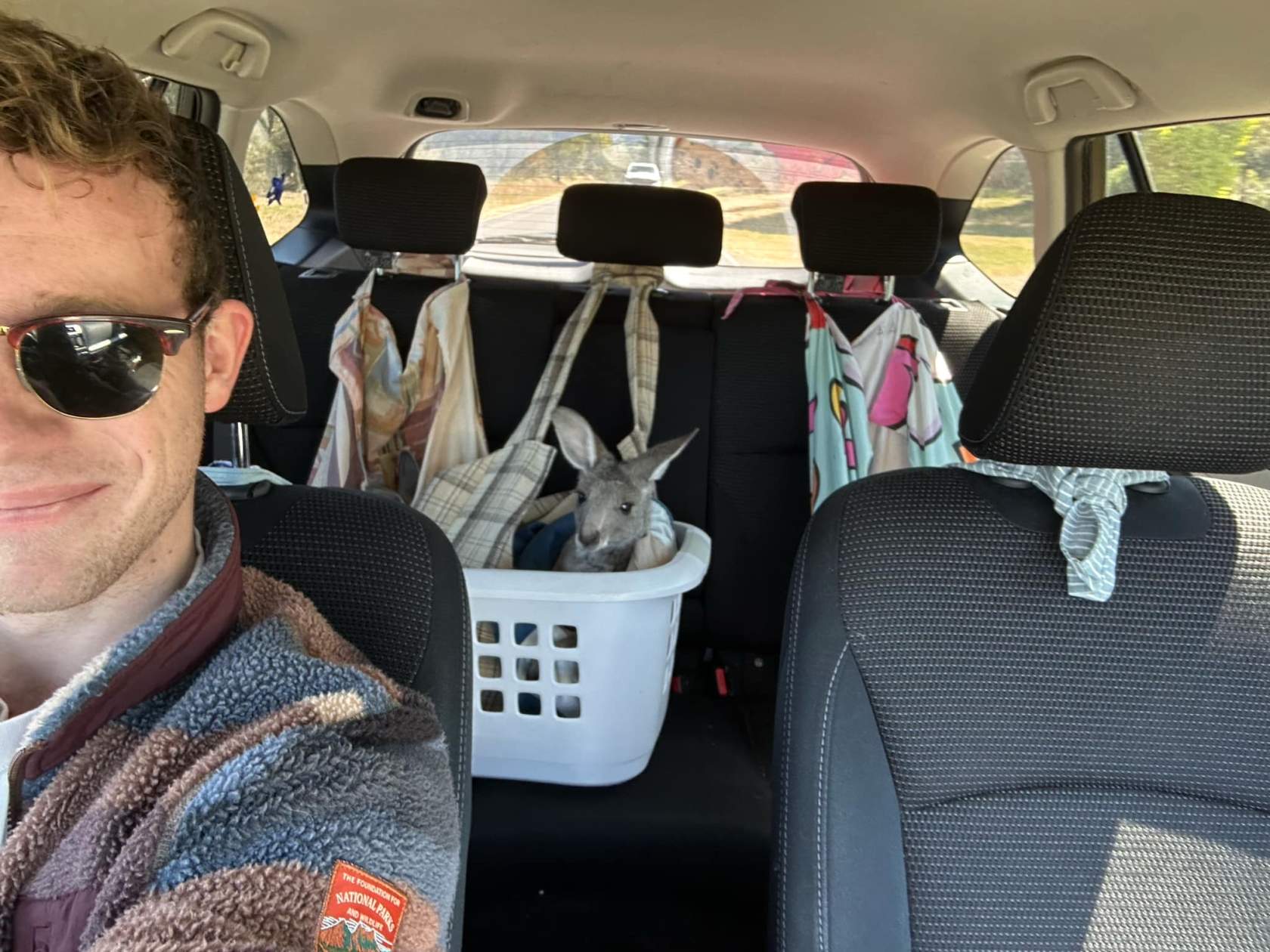
Why is the ERS so important?
The ERS is the heart of Wildlife Victoria. When members of the public call about sick, injured or orphaned wildlife, the emergency response operator is their first point of contact, offering guidance, advice, and able to deploy a Wildlife Victoria volunteer to assist when needed. The speed and efficiency of this service can mean the difference between life and death for many native animals. It's crucial for the public to understand that when they call, they are helping us save a life.
How did you become involved with wildlife rescue?
I’ve always had a deep passion for wildlife, and my journey to Wildlife Victoria was fuelled by both my studies and hands-on experiences. I studied Wildlife and Conservation Biology and volunteered with wildlife organisations like Wildlife Victoria throughout my studies. The work I did as a volunteer ignited my commitment to protecting our native animals, so I applied to become an emergency response operator at Wildlife Victoria.
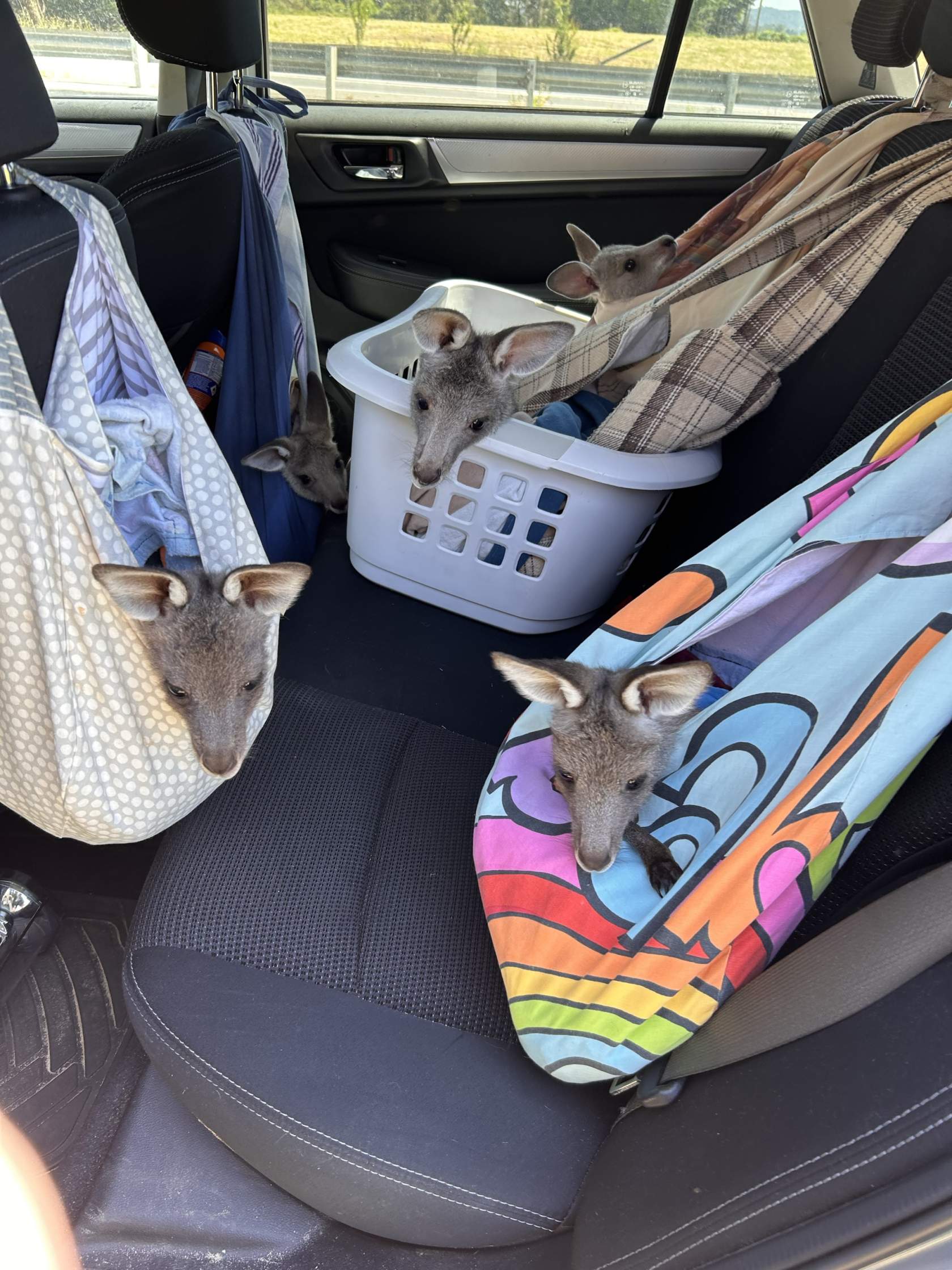
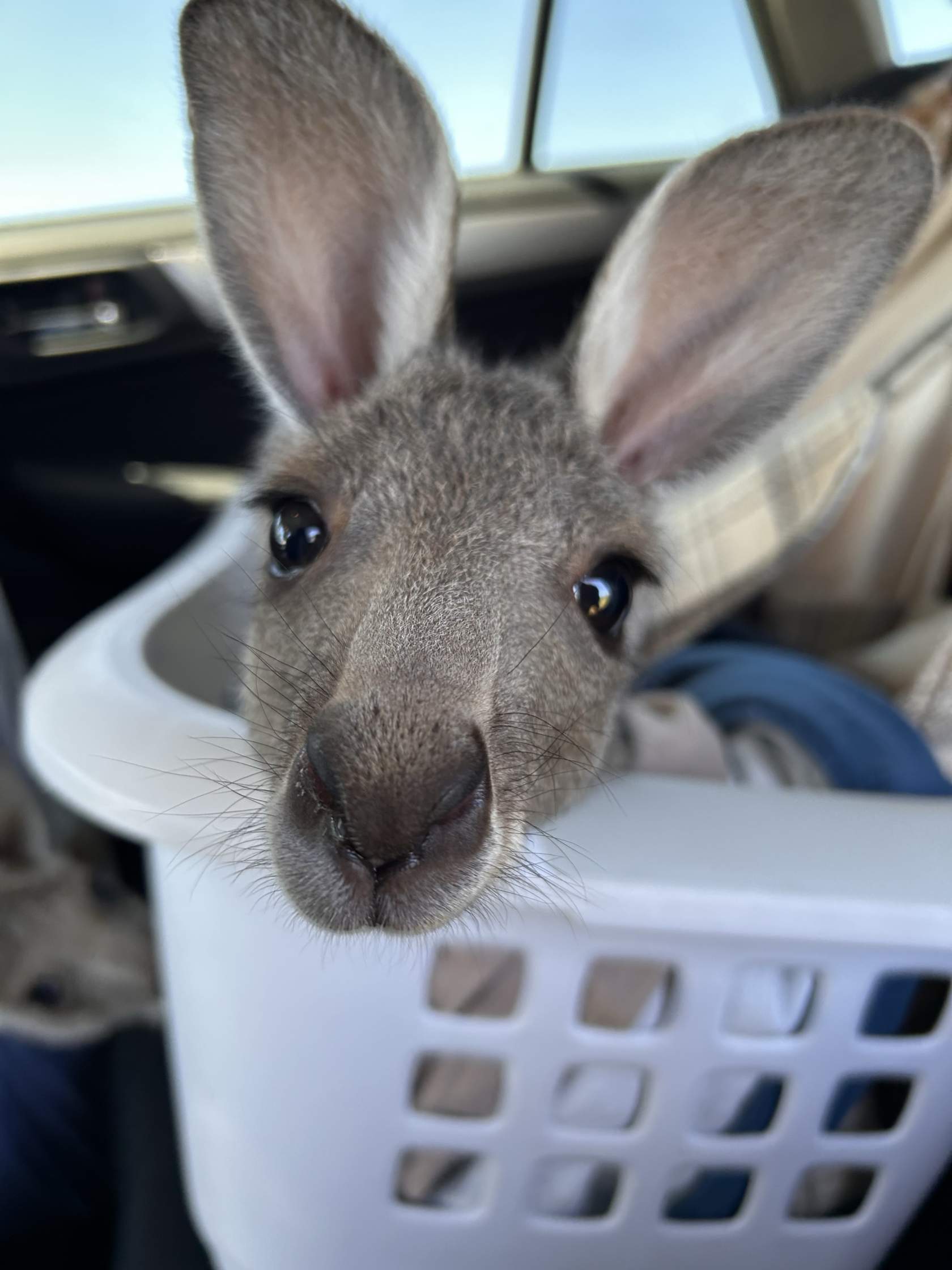
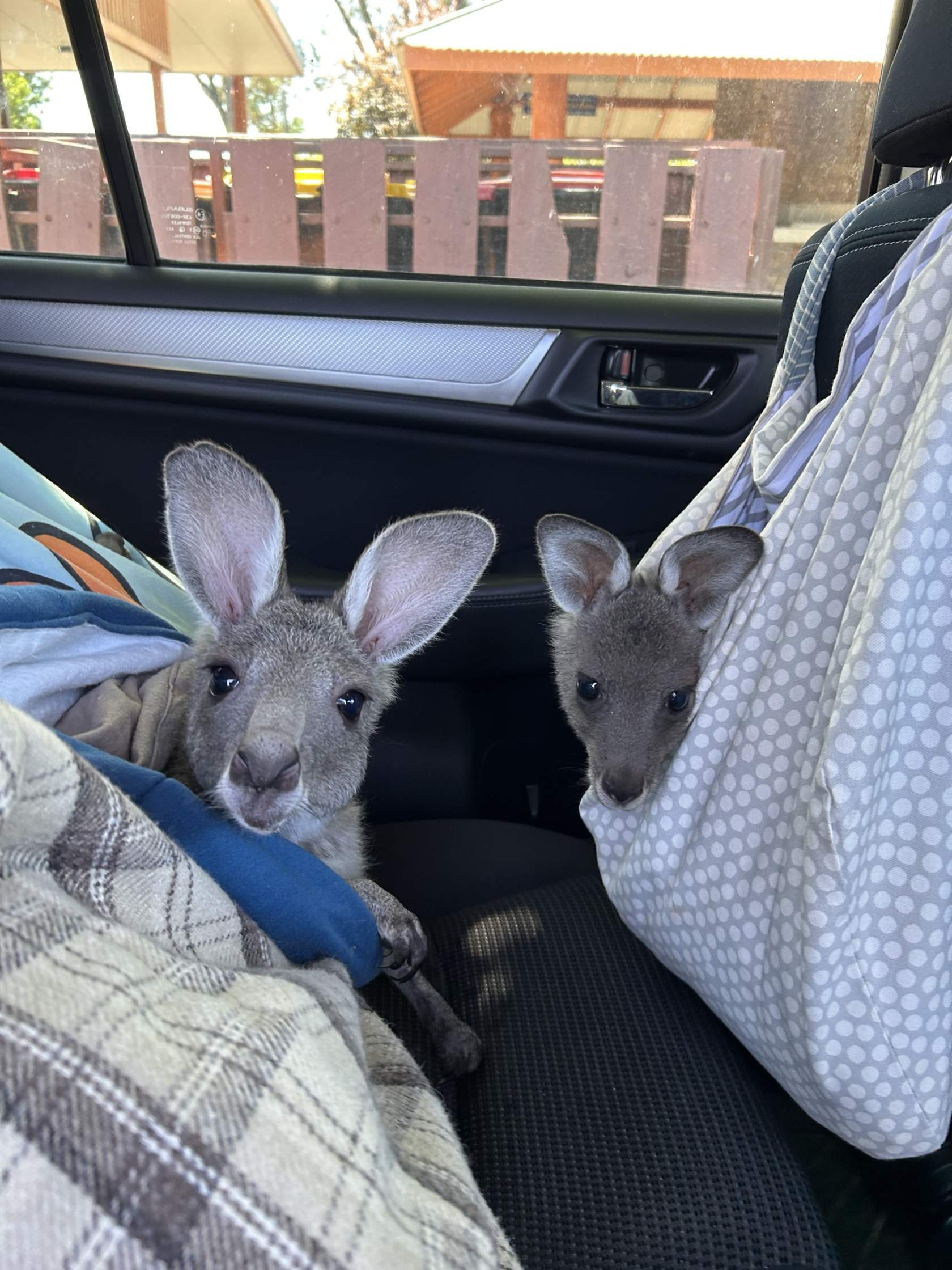
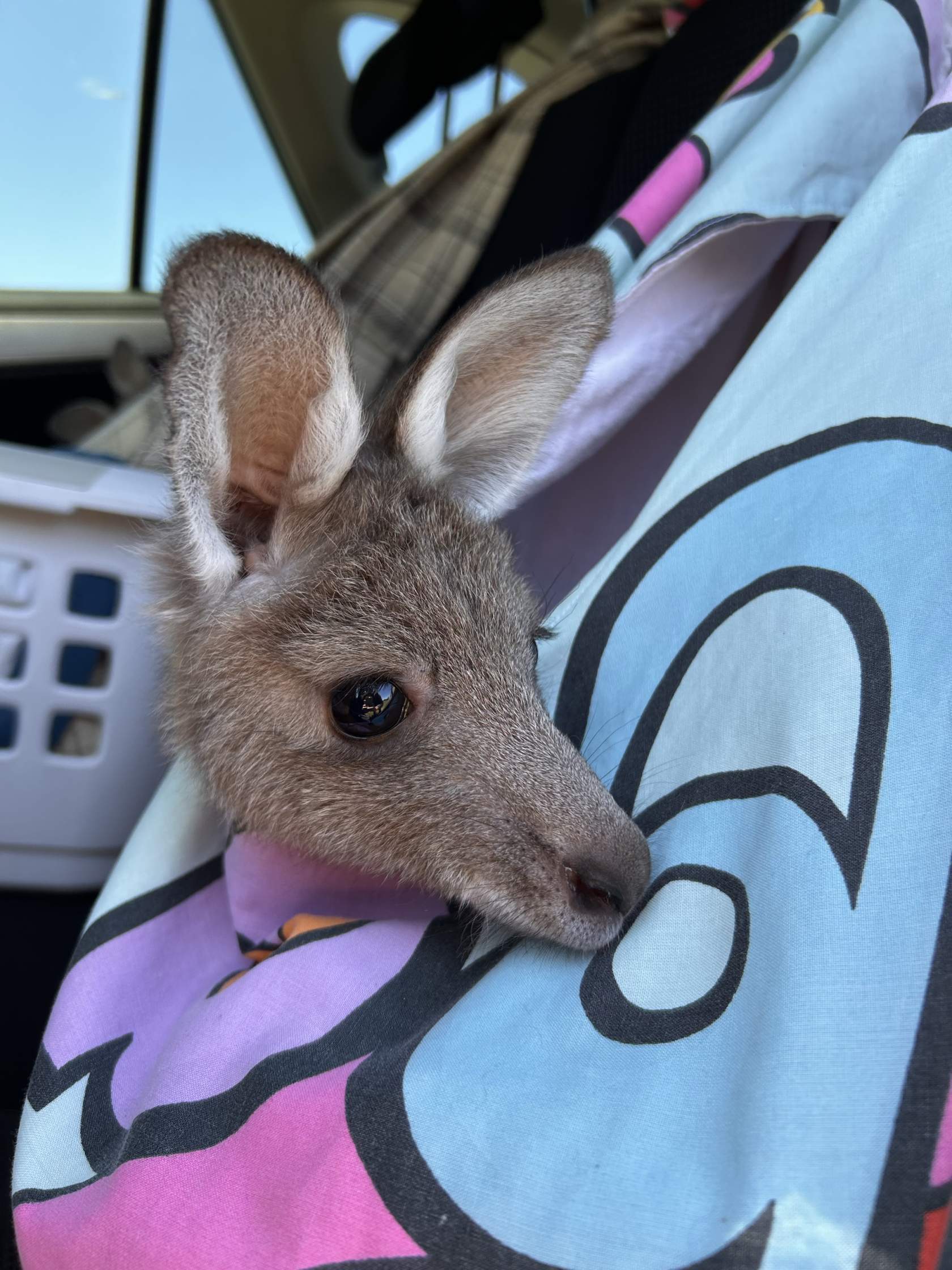
How do you get five orphaned joeys safely to their wildlife carer? Luke had a creative solution on a volunteer transport.
Wildlife rescue can be both highly rewarding and full of challenges – tell us how you manage that?
Working in the ERS means hearing about animals in distress and helping community members who are witnessing the distress firsthand. This can have a significant emotional and mental toll. Many animals are reported in a critical state, and as a charity and volunteer-led organisation, we are doing our absolute best to respond. It’s a constant reminder of how fragile wildlife can be and how urgent it is to continue our work and advocate for their protection.
However, the best part of my job is seeing the positive impact we have on native wildlife, as well as being surrounded by hardworking, compassionate, and dedicated people. It is incredibly rewarding being able to assist with the rescue of a native animal, as well as furthering the understanding and compassion of people that call us. It’s a reminder that our efforts truly make a difference.
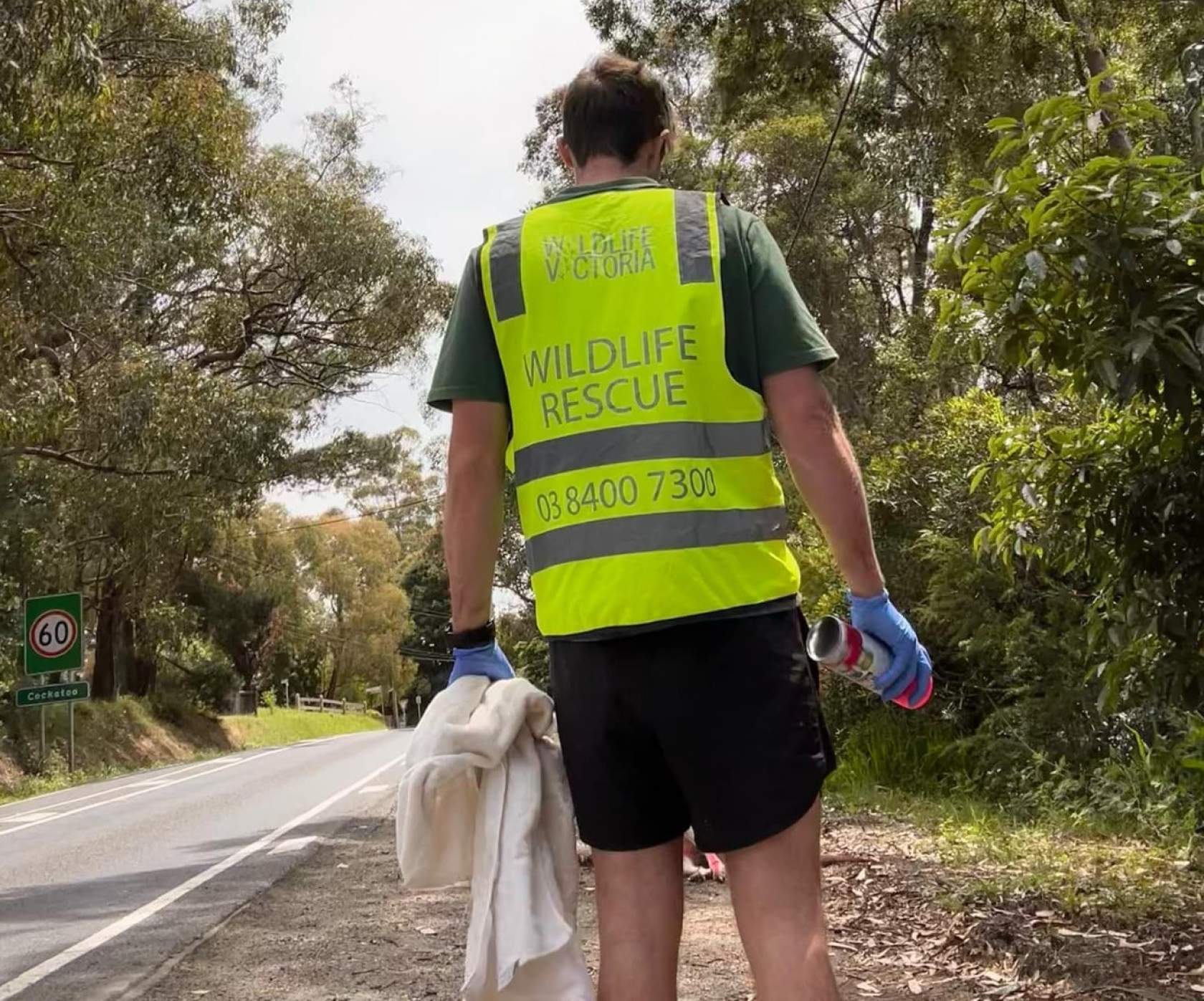
“The best part of my job is seeing the positive impact we have on our native animals, as well as being surrounded by hardworking, compassionate, and dedicated people.”
Why should we all be passionate about our native wildlife?
Our native wildlife play a vital part in the health of our ecosystem, and it’s crucial to protect them as it helps maintain the balance of nature. These animals contribute to the health of our environment, supporting everything from plant pollination to soil regeneration. Many of our native species are endemic to our country, and without passionate care and conservation, we risk losing irreplaceable aspects of what makes Victoria so special. By being passionate about wildlife, we also protect our future and promote biodiversity, which benefits the planet as a whole.
Wildlife Victoria’s Emergency Response Service is available 24 hours a day, 365 days a year. If you encounter sick, injured, or orphaned wildlife anywhere across the state, please call us on (03) 8400 7300.
Interested in volunteering?
Check out our volunteering page for more information.
